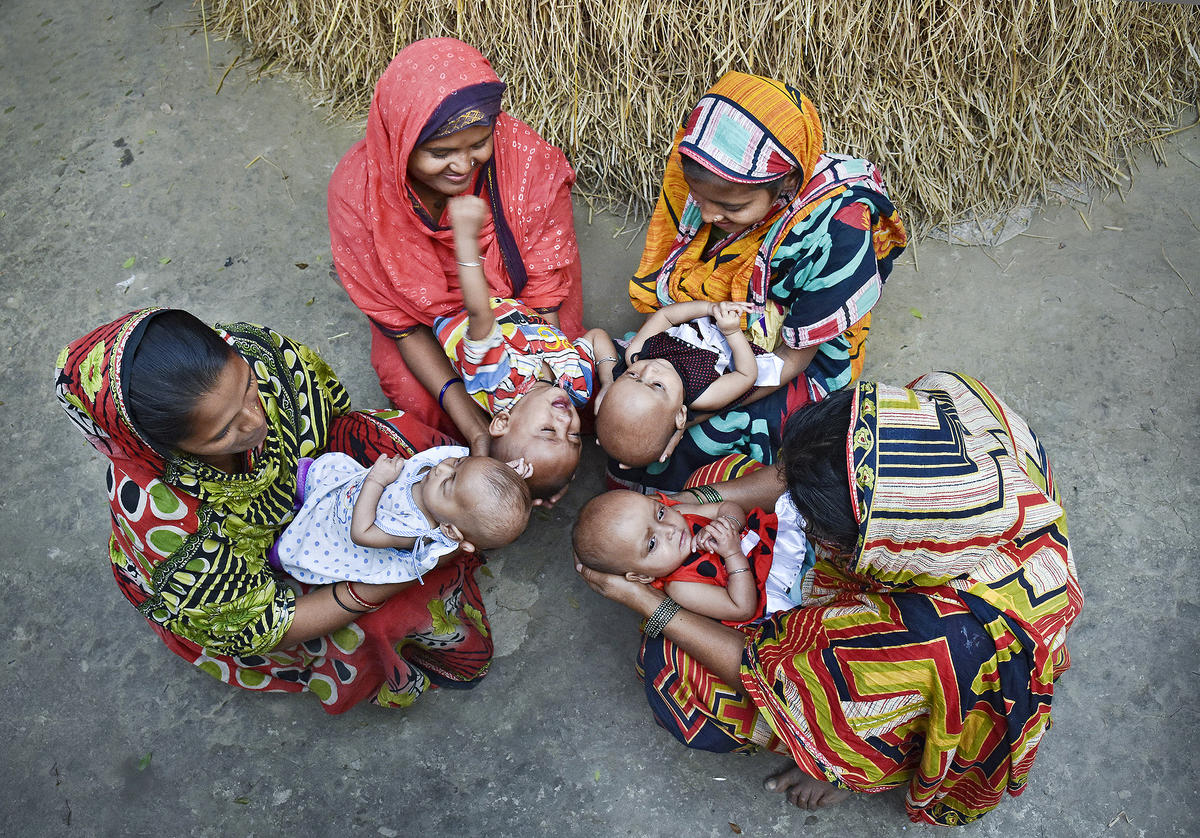Imagining bold. Imagining better.

This International Women’s Day will see no shortage of bold women speaking out and speaking up for change. And as we know from the headlines and hashtags, there is so much that needs to change: from sexual harassment and discrimination, to harmful cultural norms like child marriage and female genital mutilation, to unjust and unequal practices that penalize working women.
But changing the world as it is requires imagining the world as it should be–a world where women have the same economic, political, and social status as men. It’s the kind of world I want to live in and that I want my two pre-school aged daughters to grow up in. But more importantly, it is a world where fewer children die of preventable causes like malnutrition and more of them get a stronger start to life.
We know this because a woman’s status affects how well she and her children fare. It affects whether she and her children have enough to eat, whether she can get the care she and her children need and whether she and her children will have a healthy future. I would argue, a woman’s status in society affects the kind of future we will all have.
Too many women—whether they work harvesting crops in rural Kenya or stocking store shelves in rural Kentucky—struggle to earn enough to feed their families. In a world where women are paid fairly for their work and have the same economic opportunities as men, there would be fewer children suffering from hunger. This is born out in the research that shows that if women farmers in Africa had the same rights to land as men and equal access to markets, training and other resources, there would be between 100 and 150 million fewer people going hungry. Studies also show that that men and women use household resources differently with women typically spending more on children’s nutrition, health care and education.
A woman who is herself healthy and empowered is better able to give her child a strong start to life. In many of the poorer parts of the world, young children who are malnourished are very often born to women or girls who themselves are malnourished. This intergenerational cycle–wherein malnourished girls become malnourished mothers who give birth to babies who are malnourished, born too small or born too soon–is hard to break without greater attention to the health, nutrition and well-being of girls and women. Breaking the cycle also requires that the pernicious practice of child marriage, which deprives girls of their potential, is ended once and for all.
A society that values women as it does men would not think twice about ensuring a woman’s health care needs are met. Pregnancy would not be something health insurers could charge women more for or could use to deny women coverage. In fact, prenatal, childbirth and post-partum services would be considered absolutely essential—because they are, and not just for women themselves. A world where women have access to comprehensive health services before, during and after the birth of a child is a better world for everybody. There would be fewer babies born prematurely or at a low birth weight—conditions which put children at a developmental and health disadvantage and cost health systems billions of dollars each year. Maternal mortality rates, which remain unacceptably high in the U.S. and in many parts of the world, would drop. With fewer women dying in childbirth and suffering from childbirth-related complications, more children would thrive. Women would have support to start out breastfeeding—a practice considered so critical that UNICEF recently highlighted it as the most important way to improve child survival. And they would be able to get the help they need to deal with depression and other serious mental health conditions that can have a devastating effect on women and their families. Emerging research shows a strong link between depression in mothers and stunted development in young children, which in turn has a lasting impact on children’s ability to learn and rise out of poverty.
When women have the same power and status as men, caring for children becomes a shared responsibility that society values. Generous paid leave policies for by both mothers and fathers working outside the home would become the norm. With job-protected paid time off to care for their babies, women who choose to breastfeed are able to do so for longer. This means more children get the unique and powerful brain-building and immunological benefits of breastmilk and more mothers have a lower risk of developing ovarian cancer, breast cancer, heart disease and other chronic conditions. There is a preponderance of evidence showing that breastfeeding saves lives, gives women and children a healthier future, and saves countries billions of dollars in health care costs. Yet most countries lack sufficient paid parental leave, policies to protect breastfeeding, and investments in healthcare systems support for nursing mothers, and thus fail to value and support women’s decision to breastfeed.
There is no question in my mind that a world where women enjoy the same rights and status as men would be a healthier and more just world. With fresh urgency and new-found fierceness, the global movement for women’s rights and equality can reshape the world as we know it into a place where every child—regardless of whether they are born a boy or a girl—has an equal chance of reaching their full potential.
